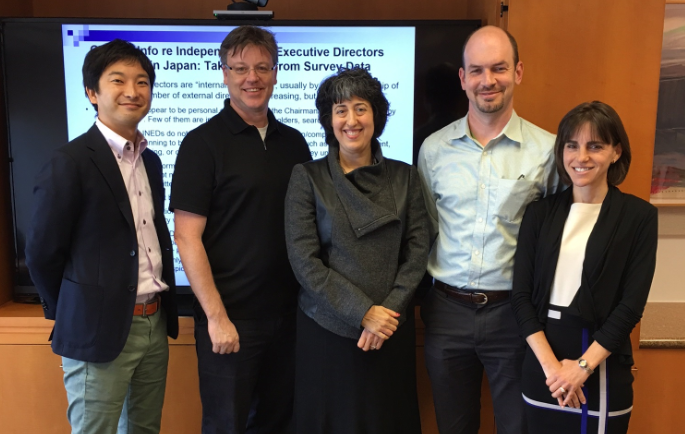The Board Director Training Institute of Japan (BDTI) is a government-certified nonprofit providing one-day “director training” courses in English and Japanese, and governance-related seminars and e-learning courses. These programs teach participants key knowledge needed to serve on, report to, or analyze boards in Japan.
What topics are covered by such programs, and why? What issues surround the introduction of director training, or governance training, in the case of Japan? Why is training believed to be utterly essential to the success of Japan’s corporate governance reforms? What is the best approach – who needs to betrained, how? Why is the potential upside for Japan’s economy big?
In this seminar event, the proposer of Japan’s Corporate Governance Code will answer these questions, using the binders and documents that are actually used in BDTI’s English course. The program will kick off with lunch at 12:oo noon. Starting about 4:00 pm until 6:00 pm, the lecturer will lead interactive discussion about what the reforms mean from an investor’s perspective, what changes and debates are taking place “behind the scenes” in Japanese companies now, and what sort of tactics for investment and engagement with Japanese companies are likely to be most effective.



